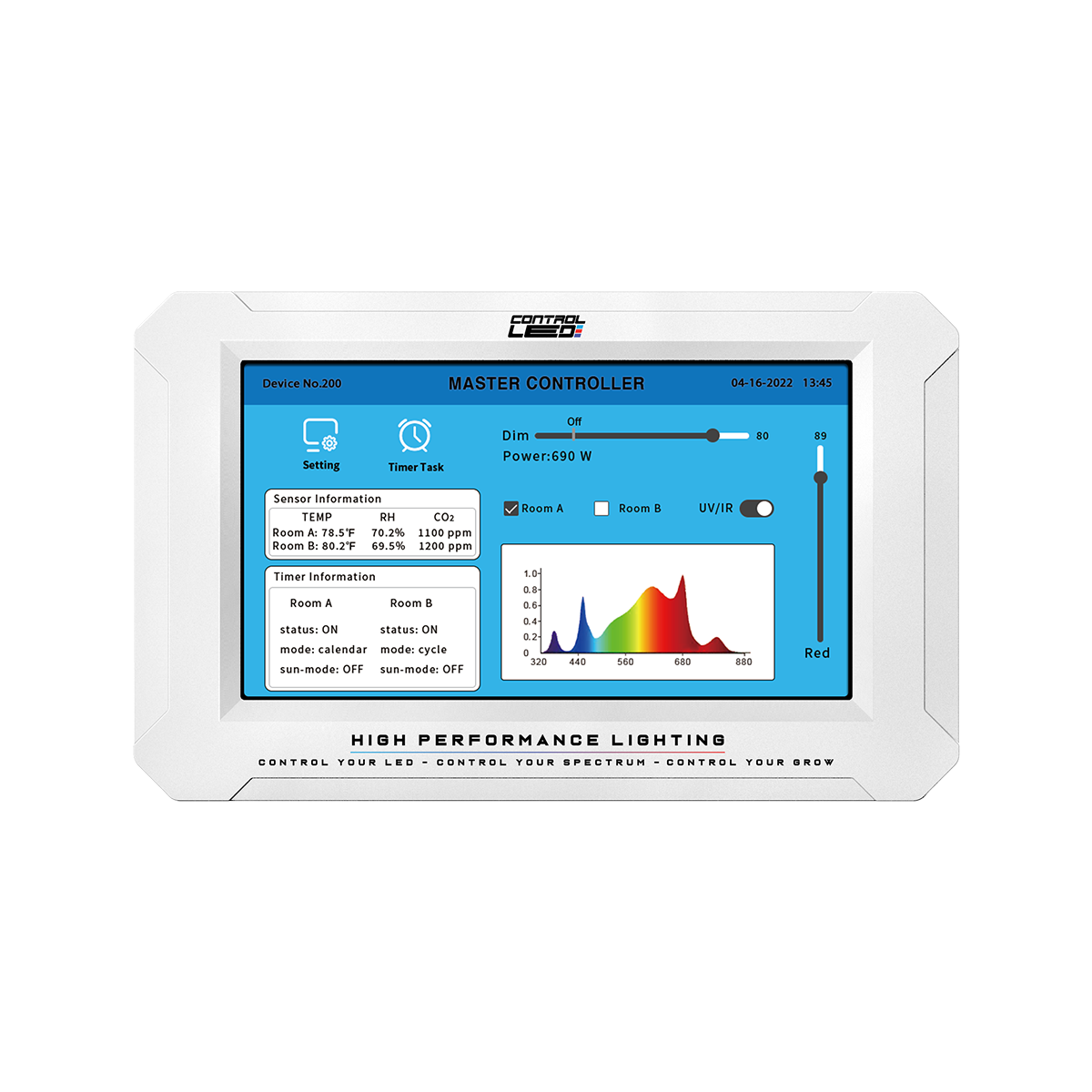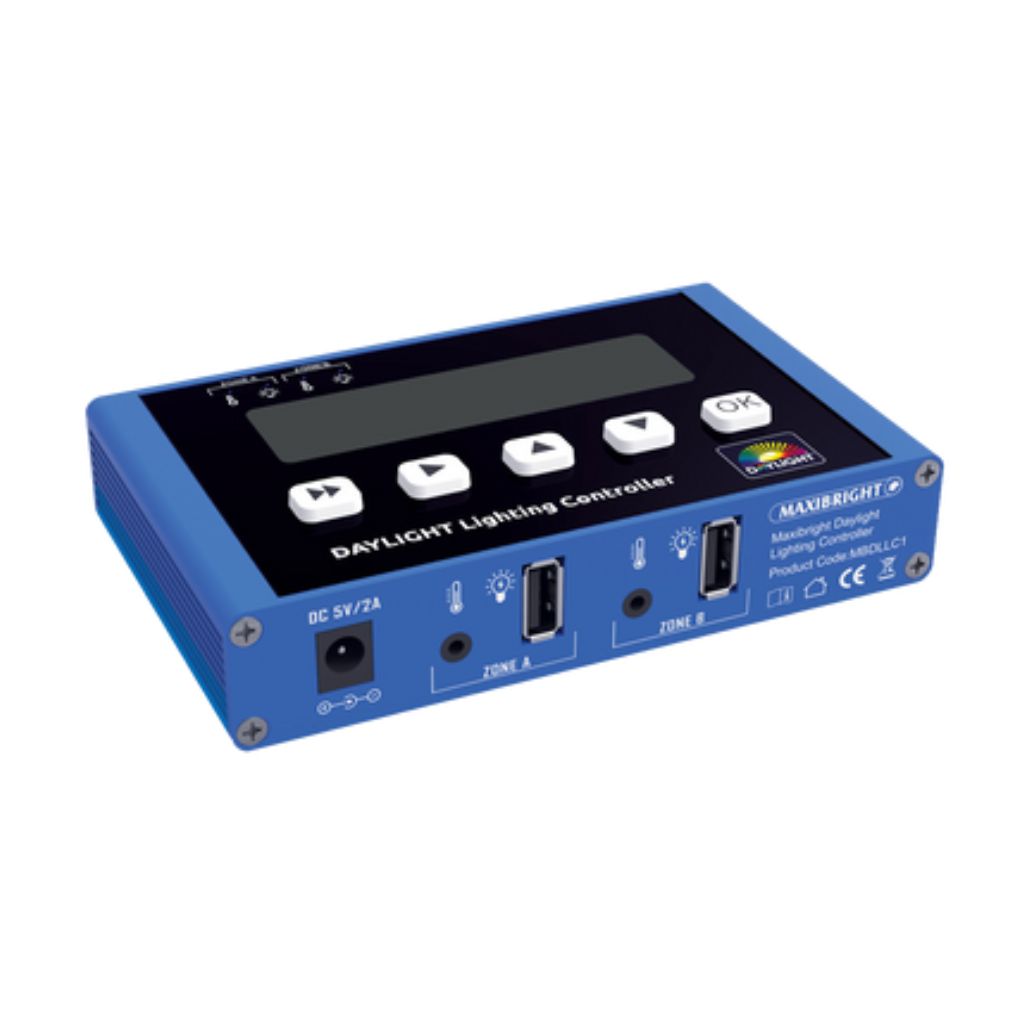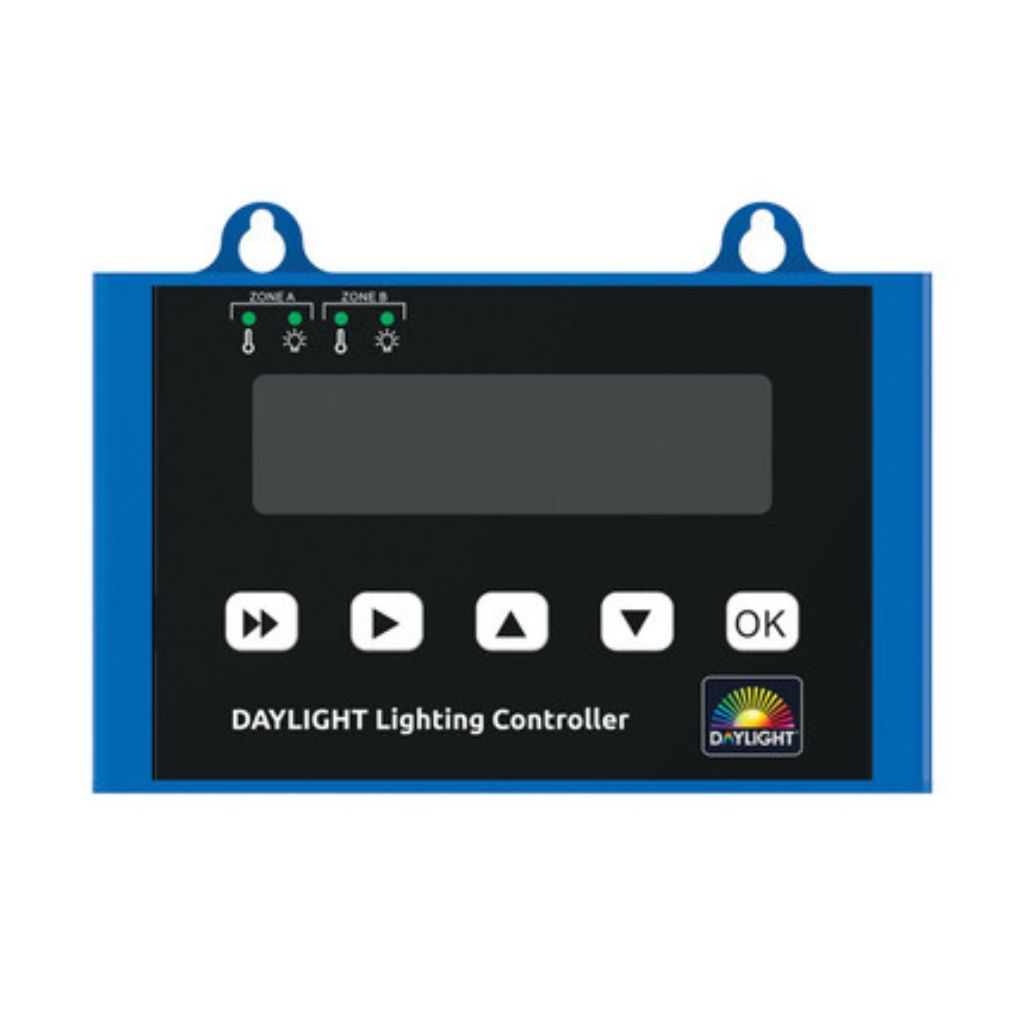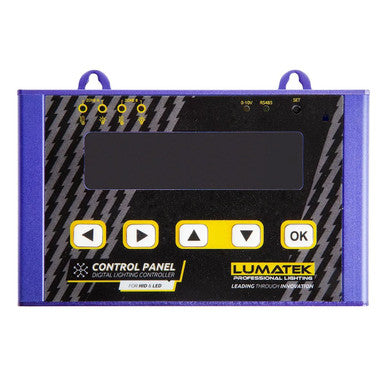Looking to control your LED grow light? We stock all Led lighting controllers for your Lumatek, Maxibright, Control Led and many more.
An LED light controller is a device or system used to control and manage the operation of LED lights. Here are some common features found in LED light controllers:
Dimming: LED light controllers allow you to adjust the brightness of the LEDs. This feature is particularly useful for creating different lighting moods and saving energy.
Programmability: Advanced LED light controllers may offer programmable features, allowing you to create customized lighting sequences, schedules, or scenarios. This can be useful for events, theatrical performances, or automated lighting setups.
Synchronization: Some LED light controllers offer synchronization capabilities, allowing you to synchronize the lighting effects across multiple devices or fixtures. This is useful for achieving coordinated lighting displays or immersive experiences.
Energy Monitoring: Advanced LED light controllers may provide energy monitoring features, allowing you to track the energy consumption of your LED lights. This information can help you optimize energy usage and reduce costs.
It's important to note that the specific features and capabilities of LED light controllers may vary depending on the brand, model, and intended use. Different controllers may offer additional features tailored to specific applications, such as architectural lighting, stage lighting, or residential lighting.
An LED light controller is a device or system used to control and manage the operation of LED lights. Here are some common features found in LED light controllers:
Dimming: LED light controllers allow you to adjust the brightness of the LEDs. This feature is particularly useful for creating different lighting moods and saving energy.
Programmability: Advanced LED light controllers may offer programmable features, allowing you to create customized lighting sequences, schedules, or scenarios. This can be useful for events, theatrical performances, or automated lighting setups.
Synchronization: Some LED light controllers offer synchronization capabilities, allowing you to synchronize the lighting effects across multiple devices or fixtures. This is useful for achieving coordinated lighting displays or immersive experiences.
Energy Monitoring: Advanced LED light controllers may provide energy monitoring features, allowing you to track the energy consumption of your LED lights. This information can help you optimize energy usage and reduce costs.
It's important to note that the specific features and capabilities of LED light controllers may vary depending on the brand, model, and intended use. Different controllers may offer additional features tailored to specific applications, such as architectural lighting, stage lighting, or residential lighting.




